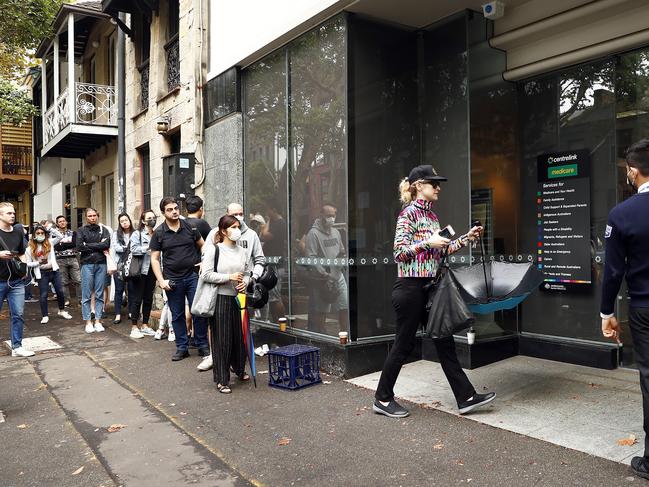COVID-19 crisis leaves charities facing dire financial future
In a year of back-to-back crises, charities have never been in greater demand. But thousands are on the brink of collapse, and up to 200,000 jobs are at risk, a new report has revealed.
NSW
Don't miss out on the headlines from NSW. Followed categories will be added to My News.
- Warning JobKeeper ‘iceberg’ could sink NSW recovery
- Ibrahim and Sandilands part of the fab four in the Cross
Australia’s charities are facing a dire future with up to 200,000 jobs at risk as a result of falling revenue streams due to the COVID-19 crisis.
A report released today by Social Ventures Australia (SVA) and the Centre for Social Impact predicts thousands of charities could shut and more than 200,000 jobs could be lost if financial supports such as JobKeeper and lease and loan deferrals end in October.
The report, which modelled the potential financial impact of the crisis on Australia’s 16,000 registered charities with employees, found 17 per cent could close within six months, and 88 per cent would be running at a loss.
SVA chief executive Suzie Riddell said JobKeeper had helped sustain the sector, but the ‘October cliff’ when it ends would place many at risk at a time when communities confronted by bushfires, the pandemic and financial turmoil needed vital support services.

“When we modelled the impact of a revenue drop of 20 per cent and then looked at the impact of JobKeeper when it’s applied to 80 per cent of the workforce in these charities, it significantly sustains thousands of charities for now,” Ms Riddell said.
Australia’s 57,000 charities registered with the Australian Charities and Not-for-profits Commission have annual revenue of $155 billion. They employee more than 1.3 million people and engage three million volunteers who provide $12.7 billion of unpaid labour.

Most were in lean financial positions before the pandemic, but lost revenue streams from goods and services and cancelled events have left many struggling, despite a surge in demand for food relief, housing and homelessness services, mental health, and financial counselling.
At the same time, service delivery costs have increased due to PPE requirements, the shift to remote service delivery and higher costs to source relief supplies. Demand for Foodbank services, for example, doubled in April, while supply lines shrank by 27 per cent.

The report calls for a “ramp” not a “cliff” to transition from JobKeeper payments, including temporary extensions of funding in sub-sectors facing long recovery times, a one-off Charities Transformation Fund to help organisations the sector’s transition to the ‘new normal’ and a retention of the higher JobSeeker payment to help reduce demand for services.
“We want our charities to be partners in recovery not casualties of COVID,” Ms Riddell said.
“Charities provide services that people, communities and government rely on. They are the
social glue in our communities.
“Without thriving charities, our productivity and wellbeing is at risk.”
